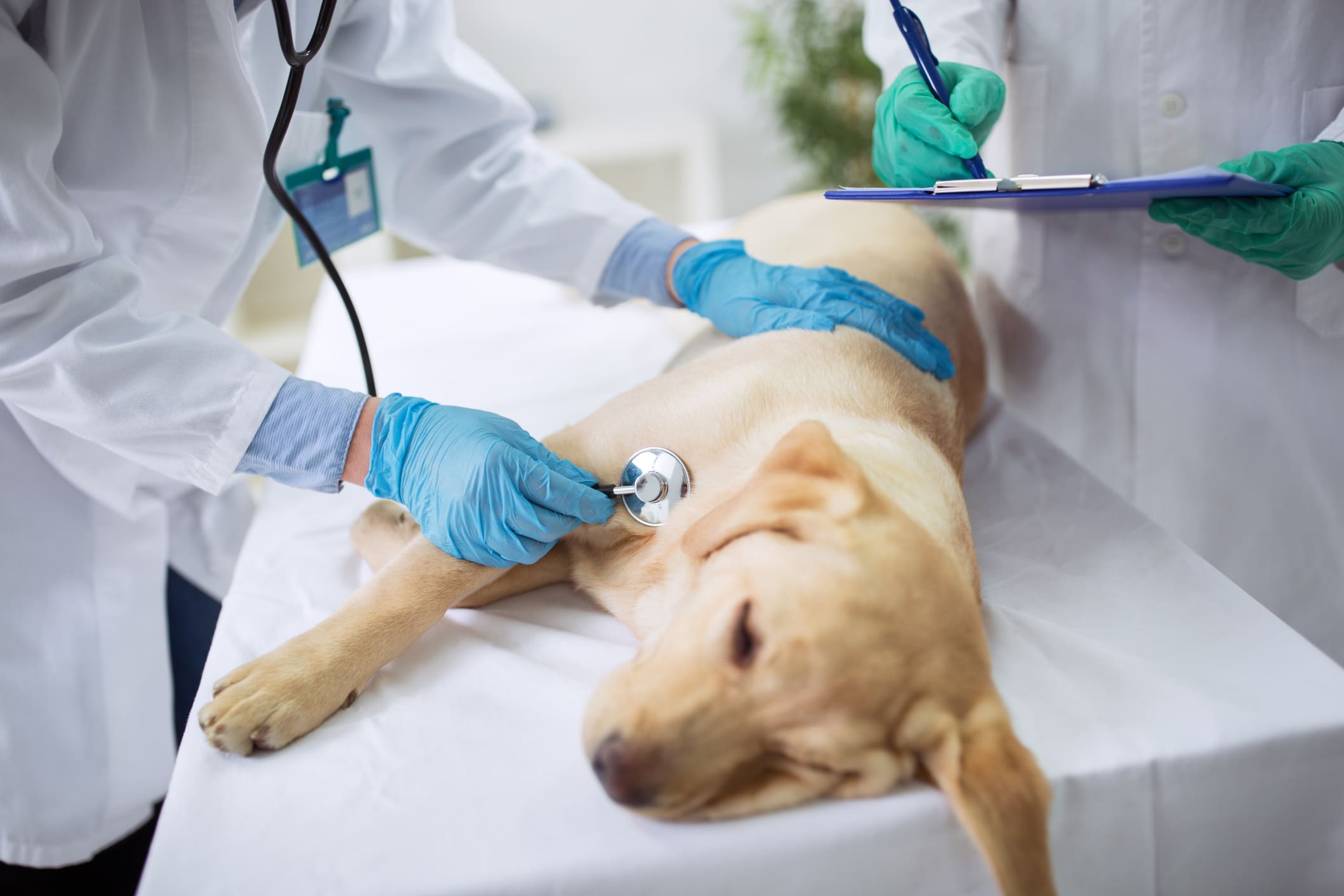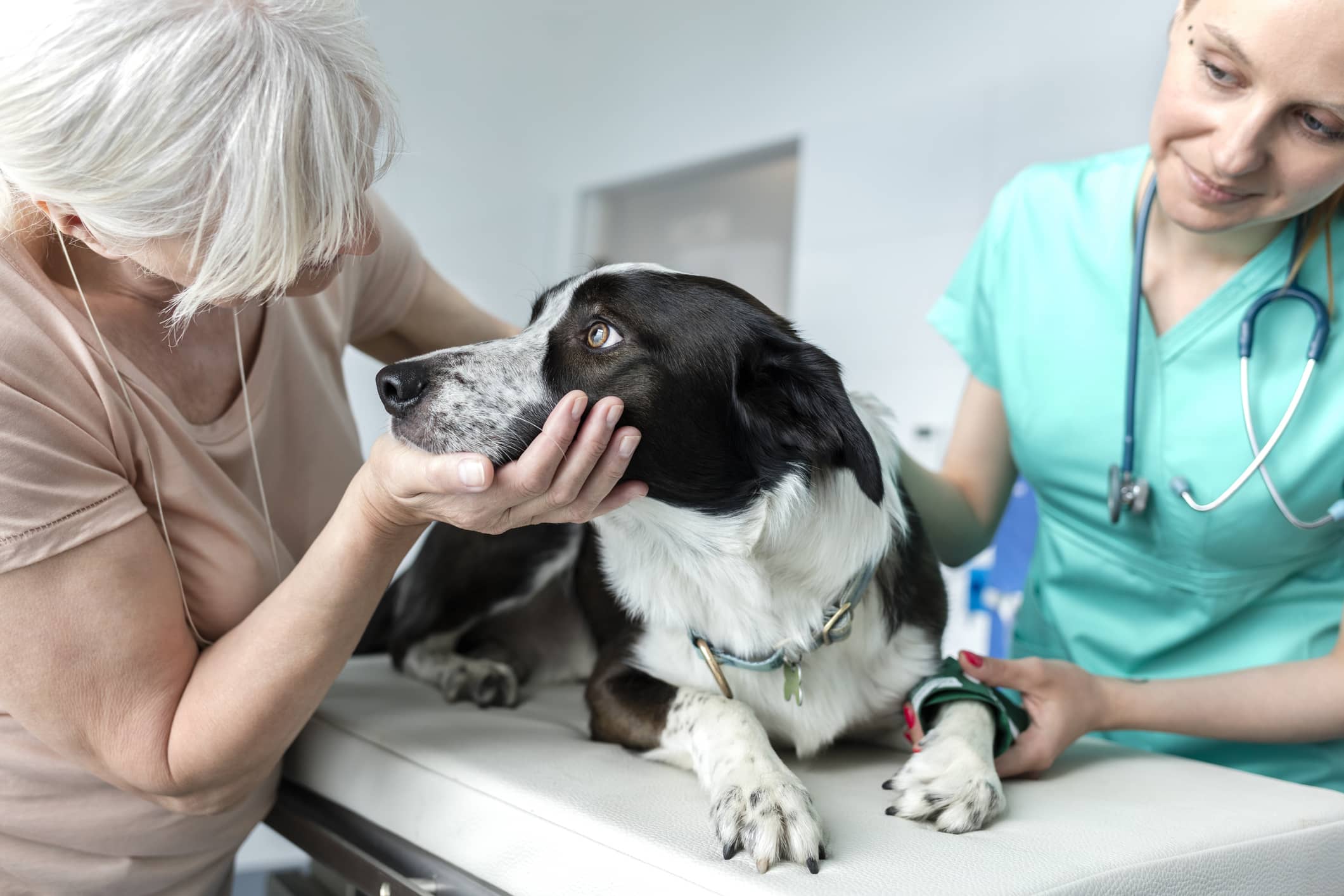Dog Snake Bite Treatment at Coastal Veterinary Care
If your dog has suffered a snake bite, time is critical. From venomous snake bites to less severe nonvenomous snake injuries, understanding the clinical signs and getting veterinary attention care can save your pet’s life. At Coastal Veterinary Care in Myrtle Beach, we’re prepared to treat snake envenomation with advanced veterinary medicine, including antivenom, supportive care, and fast diagnostics.
How to Identify a Snake Bite on Your Dog
Recognizing a venomous snake bite early is key. Dogs are often bitten on the face or legs after sniffing or investigating a snake in the yard or woods. Here are common clinical signs of a bite:
-
- Sudden swelling at the bite site (typically legs, paws, or muzzle)
- One or two visible puncture wounds, though they may be hidden by fur
- Bruising, bleeding, or discharge around the bite wound
- Lethargy, disorientation, whining, or vocalization
- Rapid breathing or signs of respiratory distress
- Trembling, vomiting, or difficulty walking
Reactions vary depending on snake species, bite location, amount of snake venom, and your dog’s size. Some may receive a dry bite, where no venom is injected, but veterinary care is always necessary to rule out severe complications like intravascular coagulation, cardiac arrhythmia, or acute renal failure.

What to Do Immediately After a Dog Snake Bite Occurs
-
- Keep your dog calm and still: Movement increases circulation and speeds venom spread. Carry your dog if possible.
- Do NOT apply ice or a tourniquet: These worsen tissue damage and slow proper healing.
- Do NOT attempt to suck out the venom: This is ineffective and may cause harm.
- Call a veterinary clinic immediately: Let them know you’re coming.
- Take a photo of the snake (if safe): Identifying the snake species helps guide appropriate treatment.
Even if you’re unsure whether the bite came from a venomous snake, treat all bites as emergencies and seek veterinary hospital care.
How Coastal Veterinary Care Treats Dog Snake Bites
Our Myrtle Beach veterinary hospital is equipped to handle all forms of snake envenomation, including rattlesnake bites, coral snake bites, and bites from other local venomous snakes like water moccasins.
We provide:
-
- Antivenom administration to neutralize snake venom
- Intravenous fluids to support blood pressure and flush toxins
- Pain medication for swelling and discomfort
- Monitoring for allergic reactions, intravascular coagulation, and organ failure
- Fast diagnostics, including same-day bloodwork and digital cytology
If your pet is bitten, our team will assess the bite wound, check vital signs, run bloodwork, and begin supportive care immediately.

Preventing Snake Bites on Your Pets
Protect your dog from a venomous snake bite with these simple precautions:
-
- Keep grass trimmed and clear brush where a snake may hide.
- Leash your dog on walks to avoid encounters with a water moccasin, coral snake, or rattlesnake.
- Avoid tall grass and wooded trails, especially at dawn or dusk when snake species are most active.
- Teach recall commands to stop your dog from investigating a potential snake bite location.
- Ask your vet about the rattlesnake vaccine for added protection from rattlesnake envenomation.
- Even a nonvenomous snake can cause a painful bite wound. Stay alert to keep your dog safe.
FAQs
How do I know if my dog was bitten by a venomous snake?
Look for rapid swelling, visible puncture wounds, and behavior changes like lethargy or disorientation. If in doubt, seek care immediately.
What does treatment for a dog snake bite involve?
Veterinary care may include antivenom, intravenous fluids, pain medication, and close monitoring to prevent complications.
Will my dog survive a snake bite?
With fast action and appropriate treatment, many dogs recover fully. Prognosis depends on snake species, bite location, and how quickly treatment is given.
Should I give any home treatment first?
No. Do not apply ice, suck the wound, or use a tourniquet. The best first aid is to keep your pet calm and get to a veterinary clinic immediately.
Why Coastal Vet?
At Coastal Veterinary Care, we are committed to providing advanced diagnostics and compassionate care for your pet. Our experienced veterinary team utilizes cutting-edge technology, including digital cytology, to deliver fast and accurate results—often within the same day. This allows us to diagnose and develop a treatment plan quickly, reducing unnecessary stress for both you and your pet.
As an AAHA-accredited facility, we uphold the highest standards in veterinary medicine. Our dedicated team takes the time to explain findings, discuss treatment options, and ensure you have all the information needed to make the best decisions for your pet’s health. Whether further testing, specialized treatment, or ongoing care is needed, we provide personalized support every step of the way.
Schedule an Appointment
At Coastal Veterinary Care, we are committed to providing fast, accurate results through digital cytology and advanced diagnostic technology, giving you peace of mind about your pet’s health. To schedule an appointment with Dr. Black for your cat or dog, contact us today!
